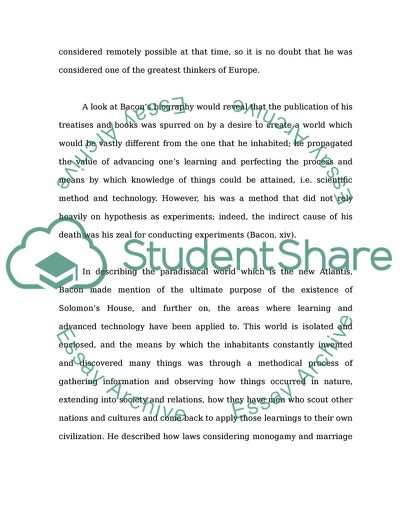Cite this document
(Sources of the Francis Bacon's Idea of Wisdom Assignment, n.d.)
Sources of the Francis Bacon's Idea of Wisdom Assignment. https://studentshare.org/philosophy/1717742-what-is-the-francis-bacons-idea-of-wisdom-from-the-study-of-his-essays-and-the-new-atlantis
Sources of the Francis Bacon's Idea of Wisdom Assignment. https://studentshare.org/philosophy/1717742-what-is-the-francis-bacons-idea-of-wisdom-from-the-study-of-his-essays-and-the-new-atlantis
(Sources of the Francis Bacon'S Idea of Wisdom Assignment)
Sources of the Francis Bacon'S Idea of Wisdom Assignment. https://studentshare.org/philosophy/1717742-what-is-the-francis-bacons-idea-of-wisdom-from-the-study-of-his-essays-and-the-new-atlantis.
Sources of the Francis Bacon'S Idea of Wisdom Assignment. https://studentshare.org/philosophy/1717742-what-is-the-francis-bacons-idea-of-wisdom-from-the-study-of-his-essays-and-the-new-atlantis.
“Sources of the Francis Bacon'S Idea of Wisdom Assignment”. https://studentshare.org/philosophy/1717742-what-is-the-francis-bacons-idea-of-wisdom-from-the-study-of-his-essays-and-the-new-atlantis.


